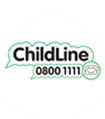A level English Language and Literature Years 12 & 13
Specification
OCR - The specification and assessment structure can be found at the link:
Split into three examination units and one independent study (coursework) unit.
The course details appear below:
| Content Overview | Assessment Overview | Total of A Level |
|---|---|---|
| Component 1 focuses on an OCR anthology of 20 non-fiction spoken and written texts across different time periods and contexts. Comparative and contextual study based on the anthology and unseen texts. |
Exploring non-fiction and spoken texts. 32 marks Written paper: 1 hour |
16% of total A Level |
| Component 2 focuses on one poetry collection from a choice of six and one drama text from a choice of six. Exploration of the text through stylistic and dramatic analysis. |
The language of poetry and plays 63 marks Written paper: 2 hours |
32% of total A Level |
| Component 3 focuses on exploring the nature of narrative in one prose fiction text from a choice of six. Writing as a reader develops the understanding of narrative technique through a creative writing task (500 words) and a commentary (250 words) |
Reading as a writer, writing as a reader 64 marks Written paper: 2 hours |
32% of total A Level |
| Independent study allowing learners to pursue particular interests and develop their expertise through an analytical comparative essay on a set text from a list of 12 non-fiction texts and a second free choice text. One text must be post-2000. Learners also produce a piece of original non-fiction writing. |
Independent study: analyzing and producing texts Non examined assessment 40 marks |
20% of total A Level |
Course Texts per unit
Component 1:
Students study an anthology of non-fiction texts from different genres and time periods. Ranging from obituaries, sports commentaries, speeches to a diary in the form of a graphic novel.
In the exam they must compare an unseen non-fiction text with one of the texts studied in class.
Component 2
Songs of Innocence and Experience by William Blake
An early rebel and outspoken radical, Blake hides fierce criticism of society behind seemingly simple childlike poems. Students study a selection of these poems in class and then compare one given poem on the exam paper with two or three of their choice.
Othello by William Shakespeare
Full of exciting themes such as revenge, jealousy, duplicity, race and gender, Othello contains possibly the greatest villain in any work of literature in the character of Iago. The play is studied in terms of its dramatic and stylistic features. In the exam, students receive an extract from the play and must analyse the dramatic, stylistic and contextual features of the extract.
Component 3: Things Fall Apart by Chinua Achebe
The novel deals with Nigerian tribal society pre-colonialism and the clash that occurs when the English missionaries try to change this traditional world.
The text is studied in class and the exam question asks the candidates to focus on a generic area of a novel such as characterisation or narration. Open book exam.
Then students are given a brief outline for a creative piece of writing and must produce 500 words in the exam room. They must then write a commentary on their creative piece justifying their language choices and chosen structure.
Independent Study
A chance for you to choose which texts you wish to write about! Your own choice of text from any genre must be compared to one of a list of 12 set texts in the non-fiction genre. You choose the focus and the title. 1500-2000 words
An opportunity for you to write about an area or issue which interests you! Create a non-fiction text in a recognised genre of 1000-1200 words.
What will English Language and Literature lead to?
Virtually whatever you want! A solid/good result in English Language and Literature confirms your grasp of a wide range of transferable skills - your ability to communicate effectively, to construct logical and well substantiated arguments, to be objective, to use language in order to create specific effects and to respond appropriately to the written word. All these skills are valuable in themselves, but are also much prized by universities and employers.
The 'A' Level provides a firm foundation for the study of arts, humanities and social sciences at college or university (e.g. law, languages, history, philosophy, psychology, journalism, media studies).
Year 12
| Topic | Further details about the topic | Skills | |
|---|---|---|---|
| Autumn Term | |||
| 1 |
Linguistic frameworks |
A robust grounding in grammatical and linguistic terminology. An introduction to writing for different audience and purposes. Background study of the context of the novel |
Analytical skills in order to approach the extracts in the OCR anthology. Writing skills needed for the non-fiction element of the exam. Identifying features which contribute to the generic and literary concepts of the novel. |
| 2 |
OCR anthology The novel “Things Fall Apart” by Chinua Achebe. |
Analysis of spoken language; transcripts; speeches; letters; biographies; articles from different time periods. Show knowledge and understanding of how language choices shape meanings in texts. |
Application of linguistic terminology. Identify aspects of narrative such as:
|
| Spring Term | |||
| 1 |
Analysis of the OCR anthology in preparation for the exam. The novel “Things Fall Apart” by Chinua Achebe. Stylistic background to poetry analysis. |
Each OCR anthology text will be studied in detail and annotated fully. Show knowledge and understanding of how language choices shape meanings in texts. Analysing a poem through linguistic techniques. |
Analytical skills using concepts and ideas from linguistic study. identify aspects of narrative such as:
|
| 2 |
Developing non-fiction writing skills. William Blake: Songs of Innocence and Experience 15 poems. |
Understanding the different non-fiction forms. Analyse poetic and stylistic techniques. |
Ongoing writing on demand practice. Identify aspects of the poem foregrounded through the use of repetition, pattern-making, patter-breaking and deviation to develop an interpretation of the set poems. |
| Summer Term | |||
| 1 | Exam preparation |
Practice questions will be sat in timed conditions. |
Exam technique. |
| 2 |
Creative Writing in preparation for the A2 exam. Introduction to the non-examined component. |
Study of narrative writing. Introduce the two pieces of coursework for the non-examined component: 1. Non-fiction writing:
2. Introduction to the demands of the comparative essay and independent wider reading:
|
Key descriptive writing skills. Adapting writing style to suit different audience and purposes. Independent wider reading. |
Year 13
| Topic | Further details about the topic | Skills | |
|---|---|---|---|
| Autumn Term | |||
| 1 |
Comparative text study for coursework. Study of narrative structure for writing as a reader exam. |
Continued drafting of agreed title for coursework. Experimenting with narrative text organisation and style. Analysing own style for commentary writing. |
Genre conventions of a variety of texts types. Highly specialised and complex writing skills. Analytical commentary writing and associated terminology. |
| 2 |
Coursework will begin and be completed. A Streetcar Named Desire - Tennessee Williams |
Continued drafting of agreed title for coursework. Understanding of the ways in which the playwright presents a theme, idea, character or other aspect of the drama. |
Highly specialised and complex writing skills. Analytical skills when analysing Shakespearean drama. |
| Spring Term | |||
| 1 |
A Streetcar Named Desire - Tennessee Williams Paper 1 Anthology of texts |
The play will be studied in close detail as this is a closed book exam. Preparation for paper 1. Analyse a range of unseen texts. |
Analytical skills when analysing Shakespearean drama. Compare and contrast the anthology texts with a range of unseen non-fiction examples. |
| 2 |
Things Fall Apart – Chinua Achebe Continue to revise the anthology texts Songs of Innocence and Experience – William Blake |
Learners will be required to answer one generic question, from a choice of two, on an aspect of narrative (such as narrative voice, the handling of time, moments of crisis). Learners answer one question on a poem from the collection and compare it with their choice of one or two other poems from their collection. |
Re-reading the text focussing on narrative techniques. Re-reading the texts focussing on linguistic techniques. Re-visiting the poems, analysing pattern making and breaking. |
| Summer Term | |||
| 1 |
Practice papers: A Streetcar Named Desire - Tennessee Williams Things Fall Apart, Blake and narrative writing. Practice papers: Paper 1 the anthology, unseen text comparison |
Exam technique will be refined |
Exam technique will be refined |
Assessments
| Resources | Topic | Type of assessment |
|---|---|---|
| CAT 1 |
Baseline test on linguistic terminology Analysing an extract from “Things Fall Apart” |
Written test |
| CAT 2 |
A piece of original non-fiction Analysing an extract from “Things Fall Apart” |
Written test |
| CAT 3 |
Practice exam question comparing two texts from the OCR anthology A comparative essay on two Blake poems. |
End of year Mock Examination |
| CAT 4 |
Practice writing as reader task and commentary Coursework drafts for both the comparative essay and original non-fiction writing |
Written test Written drafts |
| CAT 5 |
Othello factual revision test on the areas of the play covered to date. Coursework drafts for both the comparative essay and original non-fiction writing |
Written test Written drafts |
| CAT 6 |
A Streetcar Named Desire - Tennessee Williams exam task Writing as a reader. Paper 1 exam – anthology and unseen text |
Mock Examination |
Main Resources
| Resource | Details | Term |
|---|---|---|
| Set texts |
OCR anthology (provided) Copy of A Streetcar Named Desire - Tennessee Williams Penguins Classics edition |
All |
| Recommended reading |
Chinua Achebe “No Longer at Ease”, “Arrow of God” |
All |
| Recommended Websites |
|
All |
Enrichment opportunities
| Activity | Day and time or term |
|---|---|
| Coursework ‘Catch up’ and improvement time | Lunchtimes at the discretion of the teacher |







